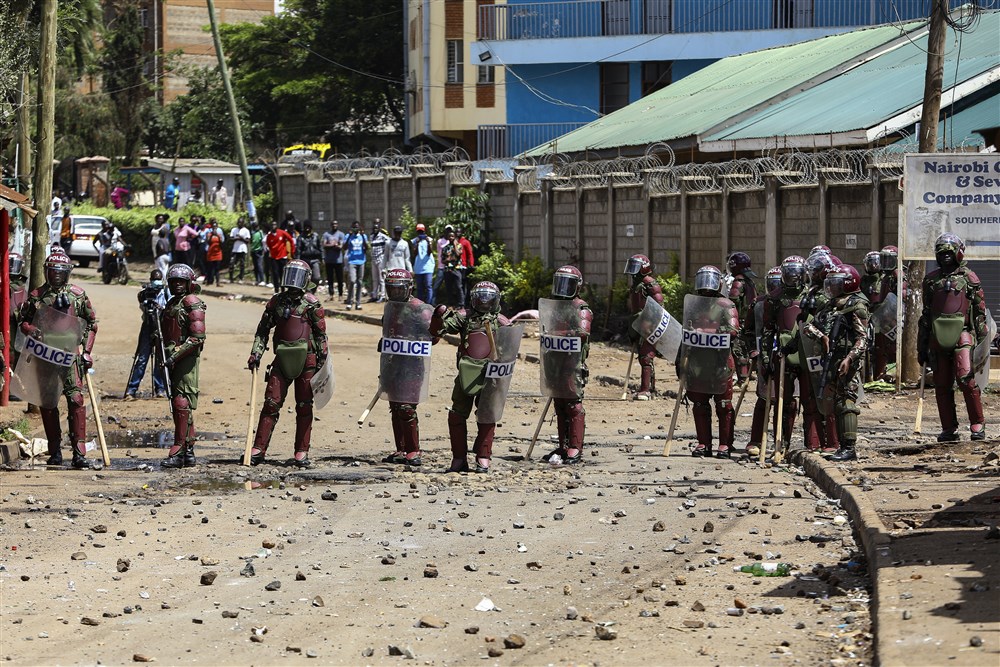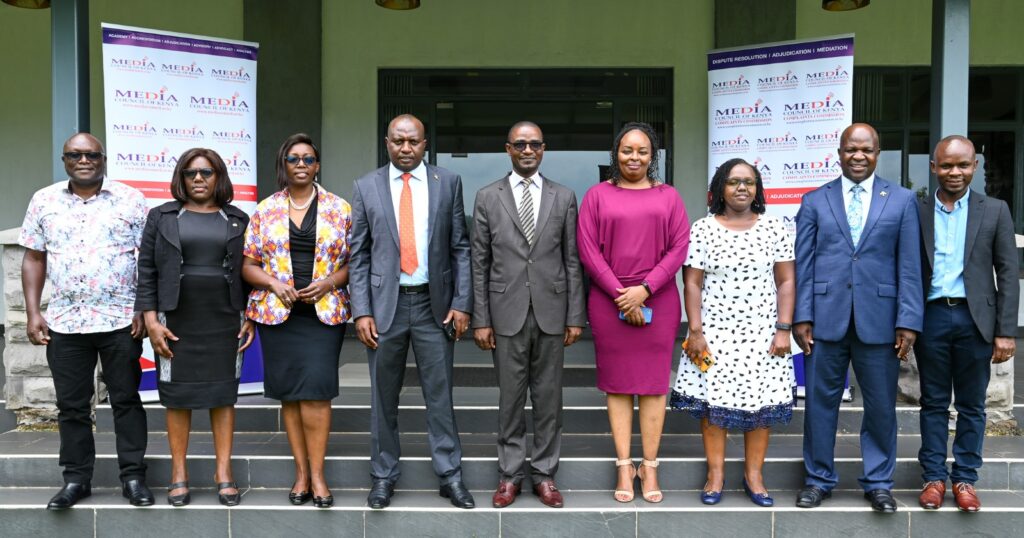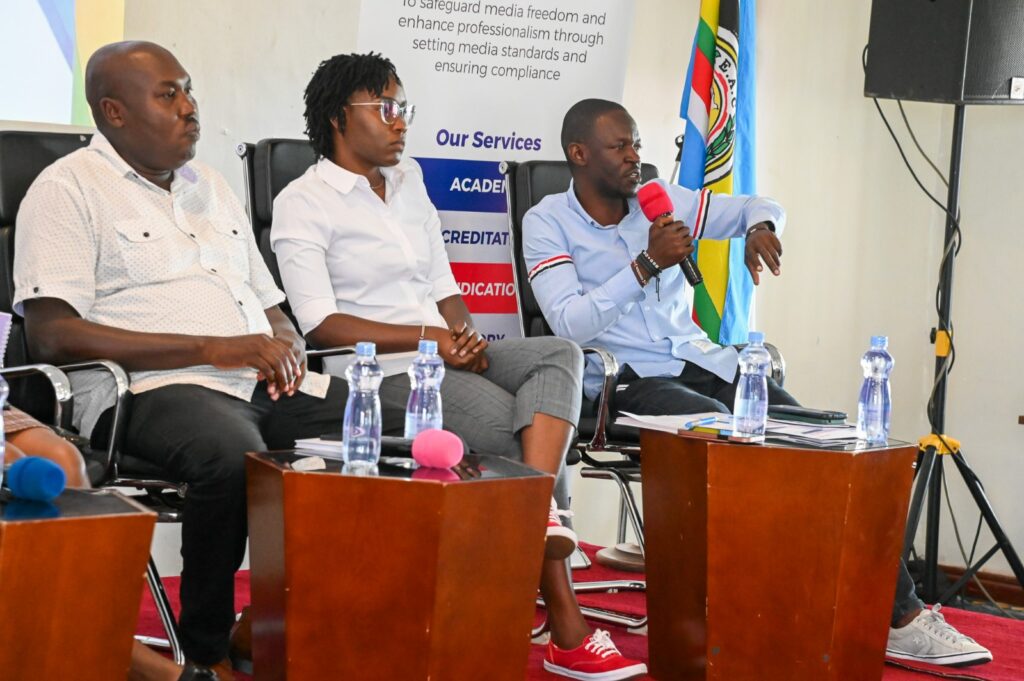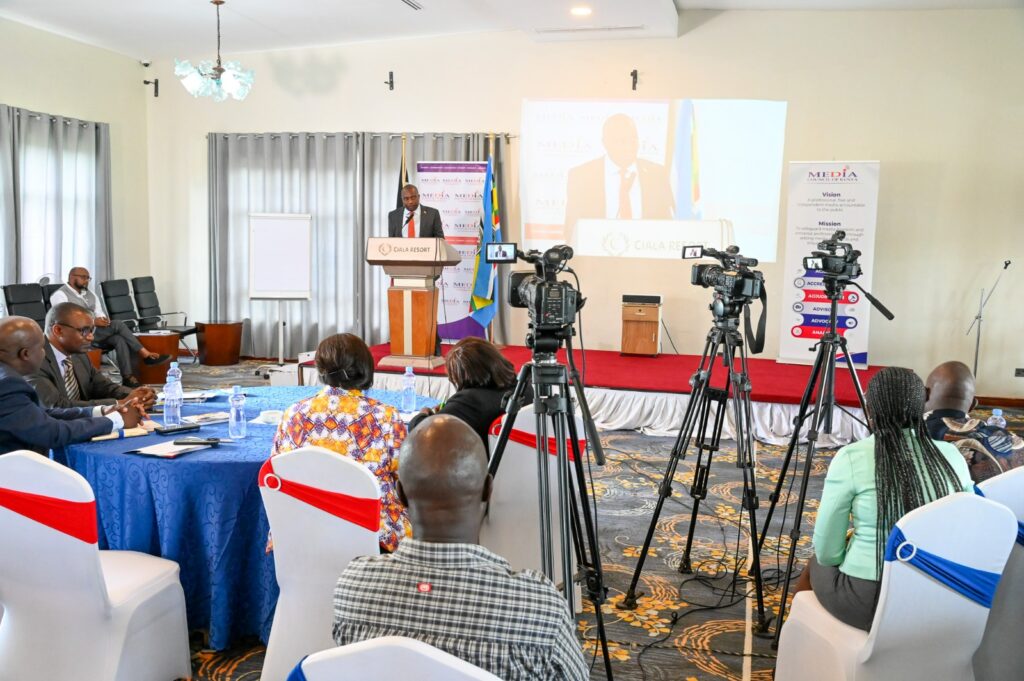March 23, 2017 left an indelible mark in the mind of Standard Group journalist Isaiah Gwengi.
After his long day in the field, Gwengi joined his friends at a shopping centre within Bondo, Siaya County.
Little did he know that this was a perfect location for his tormentors who had been tracking him for a few months.
One of the officers made a call to someone I presumed could be his boss and told him ‘tumemaliza hii kazi’ (the job is done). I knew it would be rough on me
The smooth chats of Gwengi and his peers were disrupted by a screeching sound of police land rover.
A contingent of police officers from the Quick Response Team (QRT) unit jumped out of the land rover and surrounded Gwengi and his colleagues, bundled about five of them into the vehicle and sped to their station located at Usenge Chief Camp.
“One of the officers made a call to someone I presumed could be his boss and told him ‘tumemaliza hii kazi’ (the job is done). I knew it would be rough on me,” said Gwengi.
The origin of the threat
For close to two months, Gwengi had been in the radar of these officers following the exposes he had published in the Standard Newspaper.
“This unit had been introduced here to handle insecurity in Lake Victoria after local fishermen complained of harassment by pirates and Ugandan security,” said Gwengi.
But after containing the situation, they became rogue, and begun harassing and extorting residents in Bongo and the neighbouring villages.
More than once they told me that they would deal with me, and I reported the threats to the Directorate of Criminal Investigations (DCI) in Bondo, but no action was taken
Isaiah Gwengi
And after publishing a few stories on the same, some officers started threatening him.
“More than once they told me that they would deal with me, and I reported the threats to the Directorate of Criminal Investigations (DCI) in Bondo, but no action was taken,” said Gwengi.
“So when they arrested me, I knew they had finally succeeded,” he added.
At the police station, Gwengi said he was undressed and beaten while on handcuff, as the officers repeatedly told him; “You one person cannot interfere with our work every now and then.” They had the last laugh.
He was released the following day with no charges pressed against him.

Brute against journalists unresolved
To date, the case is still with the Internal Police Oversight Authority (IPOA), and is yet to be concluded, even though the police unit has since been disbanded and Gwengi’s tormentors have been moved to other units in different places.
But this is not the only time Gwengi has suffered in the hands of police because of his work.
On July 7, 2023, while covering the ‘Saba Saba Demonstrations in Bondo’, he fell into the traps of other police officers.
The two incidents remain imprinted in my mind, and I have not healed from the trauma, and the physical injuries which continue to reoccur. It affects me at work
Isaia Gwengi
That morning, he had covered a story where a police officer had died after shooting himself at Bondo Police Station.
Later, he was in town to cover the demonstrations when a group of police officers accosted him, took away his camera and attacked him.
“I had my media badge on, and a camera. I pleaded with them that I was a journalist doing his job, but they did not listen. They beat me up before locking me in the cells,” he said.
Area Officer Commanding Police Division (OCPD) ordered for his release, without charges against him, nor being booked in the police Occurrence Book.
“The two incidents remain imprinted in my mind, and I have not healed from the trauma, and the physical injuries which continue to reoccur. It affects me at work,”

International Day to End Impunity for Crimes Against Journalists
Gwengi’s story is a reflection of the huddles journalists across the country and the globe face in the course of duty.
United Nations Educational, Scientific and Cultural Organization (UNESCO) notes that though it remains unacceptably high, impunity for crimes committed against journalists has continuously decreased by a total of three percent since 2018.
In 2022, the global impunity rate was measured by UNESCO at 86 percent compared to 89 percent in 2018. UNESCO, therefore, continues to observe an upward trend of resolved cases worldwide from 11 percent in 2018 to 14 percent in 2022.
As the media sector commemorates the International Day to End Impunity for Crimes against Journalists on November 2, to Gwengi, this is a day to reflect on his own experience.
The day recognized by the United Nations and observed annually on 2 November 2, draws attention to the level of impunity for crimes against journalists, which remains extremely high globally.
Protests and police operations provide the best fodder for state-initiated attacks against journalists.
In Kenya, between 12 March and 31 August 2020, ARTICLE 19 Eastern Africa documented 48 incidents in which 34 male and 14 female journalists and media workers faced various forms of violations, including physical assault, arrest, telephone or verbal threats, online harassment and lack of access to public information, officials and buildings.
The Kenya Media Sector Working Group (KMWSG) said reported that more than 20 journalists and media workers had been attacked or faced press freedom violations off- and online between March and April 2023 while covering countrywide protests called by the Opposition in the push for government action against high cost of living.

The attacks include; physical assault, broken equipment, harassment, and arbitrary detention.
Collaboration to fight impunity against journalists
Media regulator in the country, the Media Council of Kenya (MCK) in conjunction with Katiba Institute hosted this year’s IDEI commemoration in Kisumu.
Gwengi got the opportunity to share his ordeals at the gathering which saw stakeholders admit to a dire situation on the safety of journalists in the country, and call for wholistic approach in dealing with issues around safety of journalists and free press.
According to the council, in 2023 alone, 107 journalists have faced various forms of attacks while doing their work.
The attacks come from the police, public, politicians, and now the unlikely quarters; students,
David Omwoyo
Council CEO David Omwoyo said if not checked, the situation could get out of hand and damage the country’s ratings in terms of media freedom.
“The attacks come from the police, public, politicians, and now the unlikely quarters; students,” said Omwoyo, noting that a number of these cases have gone unpunished.
He called on concerted efforts by various stakeholders in the fight to combart impunity against journalists.
“In any spaces where you operate in, protect journalists,” he said.
The sentiments were shared by Kisumu County Deputy Governor Dr Mathews Owili who noted that impunity against journalists was worsening in the country despite the progressive constitution which provides for various human rights.
“Stakeholders must now find home-grown solutions to impunity against journalists,” he said.
He noted the need to set up special funds for compensation for journalists who become victims of attacks.
Christine Kuria, the Deputy Director at Katiba Institute noted that media is a key element in democracy, hence the need for everyone to come out and protect that space.
Through research, the entity has been able to identify legal flows in the protection of media, and propose strengthening of systems to make the space safe for the media.
“Protection of journalists is key to realisation of the fundamental rights,” she said.

Crime against journalists not prosecuted
The Directorate of Public Prosecution (DPP) denied lapse on their side in prosecuting crimes against journalists.
Tabitha Ouya, Senior Assistant in the office of the DPP said the office has previously handled criminal cases in a general manner.
She noted the need for collaboration with the media stakeholders so as to have crimes against journalists given special attention.
“It is an opportune time to take serious approach to deal with cases of journalists separately. The specific cases against journalists be made clear to us for follow ups,” she said.
She noted that criminal justice system is a chain which has other players such as the police, the Directorate of Criminal Investigations (DCI), the judiciary, among others, hence the need to engage all of them proactively.
Judy Munyinyi, the Information Secretary at the Ministry of Information and the Digital Economy who represented Principal Secetary prof Edward Kisiangani at the event noted that government remains key in defending the rights of journalists.
“It is our interest that the media sector thrives,” she said, noting that the parameters for evaluating the state of press freedom in the country was not objective as it does not reflect the unique ways of the practice of journalism in the country.
It is our interest that the media sector thrives. We must have collective endeavour to protect journalists and strive to ensure that journalists work without fear
Judy Munyinyi, the Information Secretary at the Ministry of Information and the Digital Economy
She however noted that with devolution, there is expansion in the media space, hence likely increase in threats and persecution against journalists.
“We must have collective endeavour to protect journalists and strive to ensure that journalists work without fear,” she said.

This is a very good piece my good friend Kevin,indeed the journalists are going through a lot in the field to make sure that we cover a story that is of more impotance to the mass audience.But amid everything we will never give up,we took this role to inform and educate the citizens on everything that is happening around them that they know and disclose what is happening behind closed doors too.